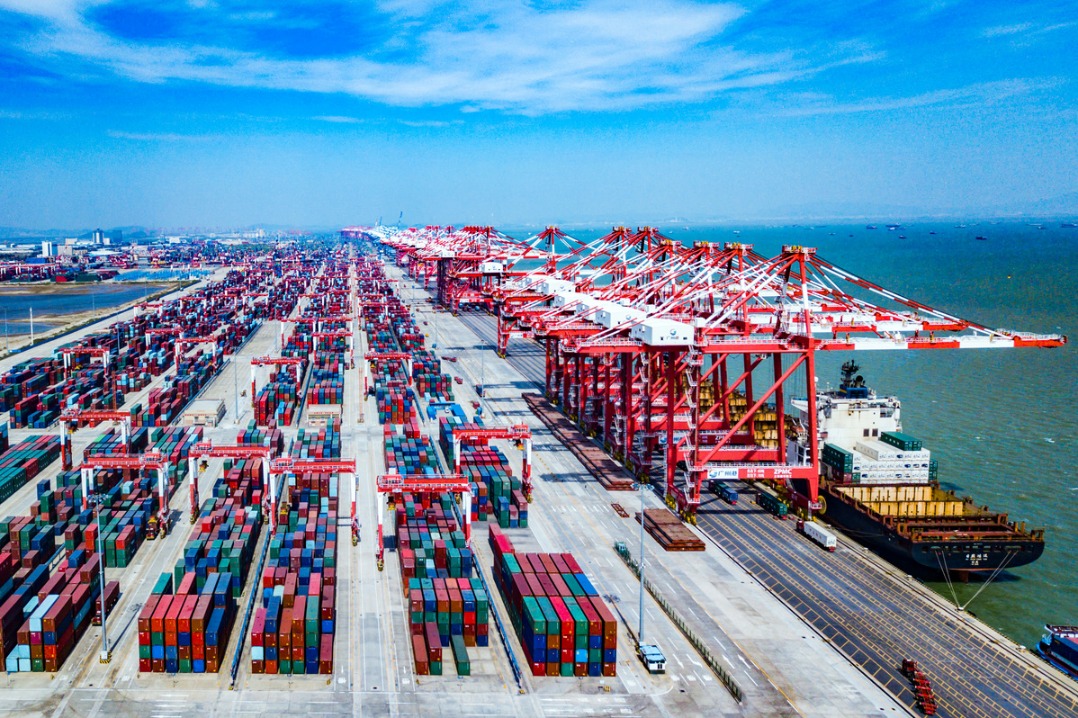Global South finds a firm foothold in multipolar world
By Julia Roknifard | China Daily Global | Updated: 2024-09-18 09:20

Rapid and undeniable shifts in global geopolitics are leading to realignments among countries of the Global South toward new emerging non-Western poles, chiefly China, as the West, having exhausted its financial, political and indeed civilizational capital, resorts to increasingly harsh measures to retain its precarious hegemonic position.
This is not a phenomenon confined to a single region. This is a global change that, one might dare to say, has not been seen since the rise of the Western colonial empires of the 1500s. It represents the most important paradigm shift of our time.
While many factors can be attributed to these sweeping changes, the pandemic and the response of various countries set the stage for the changes that we see today.
Unlike the chaotic response of the Western nations, which hoarded medical supplies and other essentials, China responded effectively, both domestically and abroad. Effective pandemic control measures included rapid development of vaccines and sharing these vaccines with less developed nations.
The Asian country emerged stronger economically following its successful handling of the pandemic, allowing a large number of countries to kick-start their own post-pandemic economic recoveries.
The pandemic was followed by another disruptive event — the Russia-Ukraine conflict — with the West waging a massive economic war against Russia even as its own economies headed into recession. The conflict revealed the damage caused by haphazard deindustrialization and financialization of Western countries that no longer had the military, manufacturing and economic strength that had once put them in an unrivaled global position.
The cause behind that conflict itself was an unrestrained post-Cold War hubris that saw the North Atlantic Treaty Organization expand aggressively eastward toward Russia's borders. The reasoning behind NATO's expansion might be up for debate, but the results are not. War, disruptions to global energy and food security, and the threat of a nuclear conflict continue to loom large.
The Middle East has also been set alight. Again, while the reasoning behind Israel's retaliation against Hamas might be questionable, the results are not. More than 40,000 people have been killed, and almost the whole of Gaza has been displaced, and now faces what has been described as genocide. Having failed to extinguish Hamas, Israel is spoiling for a fight with Iran and its ally, the Hezbollah, unsurprisingly with unrestrained Western backing.
The conflict in Gaza has opened the floodgates of anti-Western sentiments. The Global South has firmly voiced its opposition against events on the ground and narratives that accompany them. The very little political capital the West retained has evaporated following the hypocrisy shown in the Gaza conflict.
While the West continues to feed weapons into both conflicts, China has sought to play a mediating role in both, with noticeably more success in the Middle East. China is playing an active role in pushing for a cease-fire over the Gaza conflict and has managed to be a mediator in uniting the various Palestinian factions that had previously been greater enemies of each other than Israel.
China's outreach is not limited to these areas. Africa has been a huge beneficiary of China's Belt and Road Initiative and Global Development Initiative, with successful programs across a continent that had been thoroughly exploited by European colonialism for centuries.
According to the white paper China and Africa in the New Era: A Partnership of Equals, Chinese companies over the last quarter century have helped African countries build or upgrade more than 10,000 km of railways, nearly 100,000 km of highways, roughly 1,000 bridges, almost 100 ports and 66,000 km of power transmission and distribution network.
In fact, the Forum on China-Africa Cooperation will advance China's effort in assisting Africa in building capacity for self-driven development and support faster modernization in the continent, a stark contrast from the years of military occupation, resource extraction and economic colonialism.
Even in Southeast Asia, traditionally Western-oriented countries, particularly Malaysia, Thailand and Indonesia, have been taking steps that would have been unthinkable even a few years ago with the former two applying for membership in the BRICS grouping, while Indonesia, which had at one time signaled the same and then changed course, might be revisiting the idea.
Being pragmatic trading nations, they have fostered trade links with both East and West but the rise of China and shrinking of Western economic potential has decisively swung the trade balance toward China.
Over the longer term, groupings such as the BRICS and the Shanghai Cooperation Organization are likely to form new "poles" with China, Russia and to a degree India, counterbalancing the West on the global stage. Ideally, it should be a system where countries will no longer have to face the choice of capitulation with the West or sanctions and war. These developments will shape a better and more prosperous world where even smaller states can count on development initiatives that will uplift them and will no longer live under the shadow of Western pressure.
The author is an international relations expert based in Kuala Lumpur.
























